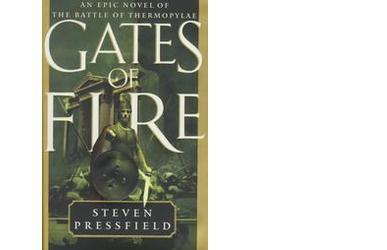 I had this great encounter with Pete, the uber-personal trainer at the Y. He’s a guy you might take for a stereotypical jock. He’s normally all about new ways to stress your core, but the other day he’d just read a book — a BOOK! — that had bowled him over, and he couldn’t stop talking about it. It was like someone newly (and gaggingly) in love who can’t stop going on about his beloved. And they say narrative is dead. Before we write the obit, we’ve got to account for Pete.
I had this great encounter with Pete, the uber-personal trainer at the Y. He’s a guy you might take for a stereotypical jock. He’s normally all about new ways to stress your core, but the other day he’d just read a book — a BOOK! — that had bowled him over, and he couldn’t stop talking about it. It was like someone newly (and gaggingly) in love who can’t stop going on about his beloved. And they say narrative is dead. Before we write the obit, we’ve got to account for Pete.
We did a small personality piece on Pete in The Washington Post Magazine, and in talking with him about that, it became apparent he didn’t read the magazine, or even the newspaper much. So his passion for the book, Gates of Fire by Steven Pressfield about the battle of Thermopylae, doubly surprised me.
“When I started getting near the end, I began to slow down because I didn’t want it to stop. And then when I read the last page, I almost began to cry,” he said.
Yes, the book, which is really about the culture of the Spartan warrior, does feature some rather extreme training methods (and by extreme I mean frequently fatal). So clearly, that got Pete’s professional attention. But it’s not what made him want to cry when he ran out of pages.
Pressfield does a great job of immersing his readers in an alien world, featuring unspeakable brutality, yet full engagement in the real stuff of life (which always includes the proximity of death). And he’s a master at building a narrative, creating characters you care about and constantly putting them in situations of high suspense. He also deeply understands the technique of leaving key storylines hovering in the background while he forges ahead with another high-action sequence. The unresolved issues, usually emotional ones, make the characters much more highly charged as they face the physical and tactical challenges of battle. The tension and excitement in the foreground effortlessly takes on a third dimension because of what you know about the emotional challenges pushed out of sight, but not forgotten.
Also, there is an oddly romantic appeal, especially to guys like Pete, of a life that is immediate, physical, close to the elements, purged of the falseness of modernity. A movie might also move Pete, but movies happen to you. You don’t feel like you are a participant, up inside the screen with all the characters. The power of written narrative is it brings the reader inside the pages, allows him to live there in his imagination. The “END” on the final page was a rude eviction notice, one worth crying over.
“I’m just waiting long enough to forget some of it,” Pete said, “then I’m going to read it again.”
Speak Your Mind